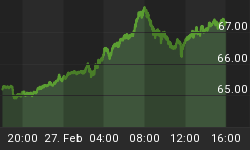The U.S. Dollar closed trading mixed after trading in a range most of the day following the release of a poor October jobs data report. The loss of 190,000 jobs was somewhat of a surprise. Traders were positioned for a loss of 175,000 jobs. The unemployment rate climbed to a 26-year high to 10.2% and the world didn't fall apart. Traders either believe this is the bottom in unemployment or they have become complacent which could mean huge volatility is looming.
The Dollar was treated as a safe-haven by some currencies while others remained focused on their own fundamentals. The action in the outside markets suggests lower interest rates and a weaker economy. Chicago financial market traders increased bets that the Fed will keep interest rates low for some time.
This week-end the G-20 meets in Scotland. Members will discuss the value of the Dollar and Asian currency rates then take a group photo on the steps of some famous building. Don't expect anything earth-shattering at this meeting.
The Euro lost ground to the Dollar on Friday. This may be an indication that traders believe the U.S. economy will drag down the Euro Zone. If the U.S. employment picture isn't improving then don't expect any improvement out of Germany.
The British Pound traded higher. Traders must believe that the Bank of England's quantitative easing expansion was the right amount necessary to give the economy a boost. I also think that traders were relieved that the report showed the U.S. economy was still weak. For awhile it looked as if the U.K. economy was going to be the last to recover.
The Dollar also lost ground to the Japanese Yen as traders sought safety in the lower yielding U.S. currency. Yen traders seem to think that U.S. rates are going to plunge or remain lower for a prolonged period of time.
The USD CAD finished higher after the Canadian Jobs Report showed an unexpected loss. Traders were looking for an increase of 10,000 jobs but the report showed a loss of 43,200. The high priced currency during the third quarter most likely killed business and any chance of a recovery. Companies were left with nothing else to do except slash jobs.
The AUD USD closed higher on the news that the Reserve Bank of Australia increased GDP expectations. It also hinted at future interest rate hikes. We'll see Monday if this was just a reaction to the news or a change in trend back to the upside. Friday's action looked as if it was short-covering rather than fresh buying.
The groundwork has been laid out by the Fed for another "demand for higher yield" rally but today's action seems to reflect trader concerns that the global economy is still struggling to recover and that perhaps the safe-haven Dollar is the place to be. A big decision is going to have to be made soon to either use the excess liquidity to chase yields or put it in a safe place like the Dollar.















